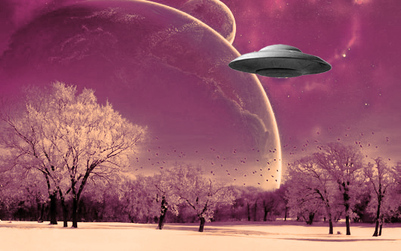
Adam is offered a chance to take a 10,000 year trip to meet with our Makers. It's one-way. No going back. With his father long gone, he will talk to his mom and ask her what she would do. Here's a chance to get an answer to a question that has haunted mankind forever, to pull back a curtain that separates us from the truth. Would you go and leave all you know and love behind? That's science fiction. A staggering opportunity with an equally profound sacrifice.
Applegate Bogdanski is a morphine-addicted Vietnam War vet missing a leg and cursed with guilt. When his guardian angel falls in love with him and the two discover a conspiracy, it's time to step up. Neither one is an angel. That's science fiction. The classical hero needs to triumph over adversity and here he's pitted against aliens harboring a secret as old as mankind.
The genre of science fiction (and fantasy) allows the writer to create new worlds, situations impossible in the present day, which highlight the human condition like no other genre can. It's true that fiction in all its forms has the same purpose, but when a writer can change the known world and create characters with cultures unlike any we have ever experienced, the sky is literally the limit.
Larger-than-life tales of action, adventure and romance can be threaded into a tapestry depicting visions of the future or ghostly images of the past. The biggest unanswered questions ever to confront humanity are written across such tapestries: Jose Philip Farmer's Riverworld where everyone who ever lived is mysteriously reborn; Arthur C. Clarke's Rama, an enormous empty ship parks in Earth orbit, inviting the unwary aboard; his Space Odyssey 2001, where we meet our mentors; and Carl Sagan's Contact, a heart-pounding thrill ride aimed squarely at the isolation of mankind from the rest of the life in our universe. Each of these stories is a poignant philosophical inquiry into the meaning and direction of our lives.
That's science fiction. Modern, unafraid and in your mind.